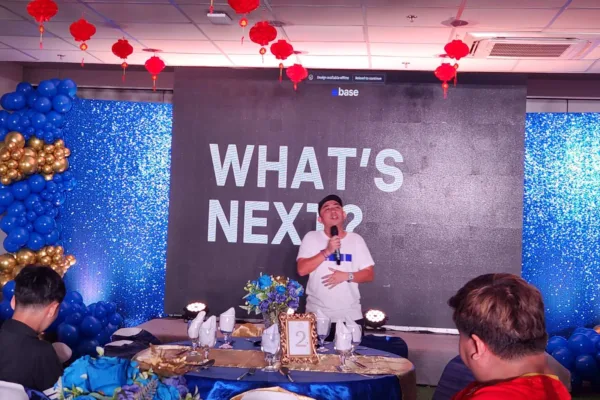by Edielyn Mangol, Reporter
The Philippine fintech scene has long been a hotbed for innovation, with blockchain technology driving breakthroughs in payments, remittances, and digital assets. But as the ecosystem matures, a new wave of disruption is emerging — Decentralized Autonomous Organizations (DAOs) and decentralized governance models are poised to redefine how fintech platforms operate and engage communities.
This shift toward decentralization signals more than just a technical evolution — it represents a cultural and structural transformation in how financial systems are built and maintained. DAOs empower users to become active participants in governance, enabling collective decision-making, transparency, and shared ownership.
For Filipino fintech startups, this opens the door to more inclusive and community-driven innovation, especially in areas like lending cooperatives, micro-investments, and rural finance, where trust and accountability are essential.
What are DAOs, and why should PH fintech care
DAOs are blockchain-powered entities governed collectively by their members through transparent voting mechanisms encoded in smart contracts. Unlike traditional companies with hierarchical management, DAOs distribute decision-making power among stakeholders, enabling:
- Transparent governance where every vote and transaction is recorded on a public ledger.
- Community-driven initiatives that give users a direct say in product development and resource allocation.
- Automated execution of agreed-upon decisions, reducing bureaucracy and enhancing efficiency.
For the Philippines, a country with a vibrant fintech startup ecosystem and growing Web3 interest, DAOs offer a promising framework to deepen financial inclusion and foster trust.
Early moves and opportunities in the Philippines
The Philippines is already laying the groundwork for DAO adoption. The Cagayan Economic Zone Authority (CEZA) is pioneering Southeast Asia’s first DAO registry, signaling regulatory openness to decentralized entities. CEZA’s DAO registry, hosted on distributed ledgers, allows entities to track application statuses transparently and aims to attract blockchain businesses by offering tax and fiscal incentives similar to other enterprises in the zone. This initiative positions CEZA as a potential blockchain capital of Asia, fostering a thriving ecosystem for digital asset operators despite ongoing regulatory challenges.
Meanwhile, fintech startups in the country are experimenting with DAO-like models to:
- Build community-governed lending platforms that empower borrowers and lenders alike.
- Manage digital asset treasuries transparently, ensuring funds are allocated according to collective decisions.
- Launch user-owned insurance and investment pools, democratizing access to financial products.
These developments align with the Bangko Sentral ng Pilipinas’ (BSP) and CEZA’s efforts to support innovation while safeguarding consumer interests, creating a fertile environment for DAOs to flourish.
Why DAOs could be a game-changer for PH Fintech
As the Philippine fintech ecosystem explores new frontiers, Decentralized Autonomous Organizations (DAOs) are emerging as a potential catalyst for transformation. With their blockchain-based, community-driven nature, DAOs can introduce more inclusive, transparent, and adaptive governance models—redefining how fintech platforms are built, managed, and scaled.

Here’s why DAOs could be a game-changer for PH fintech:
1. Enhanced transparency and trust
In a market where trust is paramount, DAOs provide an auditable governance structure. Every stakeholder can verify decisions and fund flows, reducing risks of fraud or mismanagement — a critical advantage in building confidence among Filipino users.
2. Empowering communities
DAOs shift power from centralized executives to the community, enabling fintech products that evolve based on user input. This participatory model can accelerate innovation tailored to local needs, especially for underserved segments.
3. New financial models
By removing intermediaries, DAOs can lower costs and create novel financial organizations, from decentralized credit unions to cooperative investment groups, expanding access and ownership opportunities for Filipinos.
Challenges to navigate
Despite the promise, DAOs face hurdles in the Philippine context:
- Regulatory clarity is still evolving, with questions around legal recognition and compliance. While CEZA has introduced comprehensive rules for digital assets and token offerings, broader legal frameworks for DAOs remain in development.
Raul Lambino, Administrator and Chief Executive Officer of CEZA
Raul Lambino, Administrator and Chief Executive Officer of CEZA, shared his thoughts on the newly implemented framework, saying, “It is our goal to provide a clear set of rules and guidelines that will foster innovation yet ensure proper compliance by actors in the ecosystem. It is our hope that these set of regulatory innovations will take the digital asset sector one step closer to adoption and acceptance by institutions and the traditional financial system.“
- Security concerns remain, as smart contract vulnerabilities and governance attacks can threaten DAO integrity.
- User adoption requires education and intuitive interfaces to bring mainstream Filipinos onboard.
Fintech’s next leap in embracing DAOs
As the PH fintech ecosystem embraces Web3, DAOs represent a bold step beyond traditional blockchain applications. They offer a blueprint for transparent, community-driven fintech platforms that could redefine financial services in the country.
The journey is just beginning, but with regulatory support and growing local interest, DAOs have the potential to unlock new forms of financial organization — where governance is not just decentralized, but democratized.
For Filipino fintech innovators and users alike, the next frontier is clear: building a future where technology empowers communities, not just companies.








